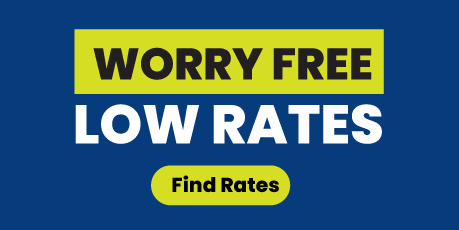First Time home buyer


What is a first time homebuyer?
A first-time homebuyer is an individual who has not owned a primary residence home in the last three years from the date of a loan application submission.
How to qualify as a first-time homebuyer?
To qualify for a First-Time Homebuyer loan program, applicants must not have owned a home in the last 3 years.
Applicants should have two years of verifiable income and a minimum of 3-3.5% as a down payment.
Below is a list of underwriting requirements for first time homebuyers.
First-Time Homebuyer Requirements:
- Minimum credit score of 580
- 3-3.5% down payment or down payment assistance approval
- Rental payment history with no 30-day late payments in last 12 months
- No bankruptcy chapter 7 in last 2 years
- Any current bankruptcy chapter 13 requires a minimum of 12 payments made on time, and written permission from bankruptcy court to purchase a home.
- 2 years of verifiable income
No credit pulls, spam calls or emails. Just stupid low rates.
Get Pre-Qualified or Try the Mortgage Calculator.
What Help is available for First-Time Buyers?
There are variety of loan programs, down-payment assistance plans, and resources to help first time homebuyers purchase a home. If the homebuyer has sufficient verifiable income and a good rental history with no 30 day late rent payments in the last 12 months, qualifying to purchase a home is obtainable.
Down payment assistance programs
A down payment assistance program is a program that helps eligible buyers, including first-time homebuyers, with funds to cover part or all of their down payment and closing costs when purchasing a home with a mortgage.
These programs are usually run by state or local government agencies, non-profit organizations, or private companies.
Down payment assistance programs typically offer funds that can be in the form of a forgiven grant, loan or a second mortgage, or a combination of these, provided certain conditions are met.
Eligibility criteria vary depending on the individual program, taking into account factors such as income, credit score, and the location and value of the home being purchased.
Down payment assistance programs can help make homeownership more accessible for those who may not have enough money saved for a down payment or closing costs.
However, it's important to understand the terms and conditions of the program, as well as any potential risks or obligations associated with receiving assistance.
Home buyers Grants and subsidies
First-time home buyers can receive grants and subsidies from some governments, which can lower the amount of funds they need to save for a down payment and other expenses related to buying a home.
Mortgage credit certificates
Certain states offer mortgage credit certificates (MCCs) designed to aid first-time homebuyers by providing them with a tax credit, thus reducing their overall tax obligation.
Low down payment mortgages
First-time home buyers may find it easier to purchase a home without having a large cash reserve by taking advantage of low down payment mortgages offered by certain lenders and mortgage loan programs like FHA, VA, USDA and Conventional HomeReady and HomePossible loan programs.
Education and counseling information
Many organizations offer education and counseling services to help first-time buyers understand the home-buying process and make informed decisions about their purchase.
No credit pulls, spam calls or emails. Just stupid low rates.
Get Pre-Approved or Try the Mortgage Calculator.
Homeownership Employer assistance
Some employers offer home-buying assistance programs to help their employees become homeowners.
How much house can I afford as a First-Time buyer?
As a first-time homebuyer, the amount of house you can afford will depend on several factors, including your income, expenses, credit score, and the amount of down payment you can make.
To simplify, a good guideline is to ensure that your housing expenses which covers mortgage payment, property taxes, and homeowner's insurance do not exceed 36% of your monthly income before taxes.
You should also make sure that your total debt payments, including housing costs, do not exceed 47% of your pre-tax monthly income.
To determine how much house you can afford, it's important to get prequalified for a mortgage, then obtain a mortgage pre-approval.
Two Steps to determine eligibility and the homes purchase price:
Step 1: Get a Mortgage Pre-Qualification
The prequalification will help you understand the amount you are eligible to qualify for based upon monthly payments, and your income and credit score.
You can also use online mortgage prequal calculator to estimate your monthly mortgage payment based on factors such as the loan amount, interest rate, and term of the loan.
This can help you get an idea of what your monthly payments will be and whether you can afford a particular home.
After using an online mortgage calculator to get prequalified, applicants will then want to obtain a mortgage pre-approval which will require a credit inquiry and the applicant submitting income and asset documents.
No credit pulls, spam calls or emails. Just stupid low rates.
Get Pre-Qualified or Try the Mortgage Calculator.
Step 2: Get a Mortgage Pre-approval and pre-approval letter
To obtain an online mortgage pre-approval, applicants must submit a mortgage application and provide the mortgage provider with all requested income documents and asset statements.
Most mortgage lenders and brokers will carefully review the documents and credit report to confirm eligibility and provide a mortgage pre-approval letter that shows eligible purchase price, down payments and the loan program like FHA, VA, USDA and Conventional loan programs.
Ultimately, the amount of house you can afford will depend on your individual financial situation, so it's important to carefully consider your budget and work with a trusted lender or financial advisor to determine what you can comfortably afford.
No credit pulls, spam calls or emails. Just stupid low rates.
Get Pre-Approved or Try the Mortgage Calculator.
What are the Challenges for First-Time Buyers?
There are several challenges that first-time homebuyers may face, including:
- Saving for a down payment: One of the biggest challenges for first-time buyers is saving enough money for a down payment, which can be a significant amount.
- Qualifying for a mortgage: Lenders have strict requirements for mortgage eligibility, including credit score, debt-to-income ratio, and employment history. First-time buyers may have a harder time meeting these requirements, particularly if they have limited credit history or high levels of debt.
- Finding an affordable home: In many areas, the cost of homes is rising faster than wages, making it difficult for first-time buyers to find affordable options.
- Competition: In a competitive housing market, first-time buyers may find themselves in bidding wars with other buyers, making it harder to secure a home.
- Hidden costs: Beyond the down payment and mortgage payments, there are many other costs associated with homeownership, including property taxes, homeowners' insurance, and maintenance and repairs.
- Understanding the process: Buying a home can be a complex and confusing process, especially for first-time buyers who may not be familiar with the terminology and steps involved.
First time homebuyers should align themselves with highly professional and vetted mortgage and real estate professionals that can cautiously guide the new homebuyer through the homebuyer journey.
How to save for a down payment?
Saving for a down payment on a home can be difficult; however, with some planning and commitment, it can be achievable. Here are some tips to help you save for a down payment:
- Set a savings goal: Determine how much you need to save for your down payment and set a target date for when you want to buy your home. This will help you determine how much you need to save each month to reach your goal.
- Create a budget: Review your monthly expenses and create a budget that allows you to save for your down payment while still meeting your other financial obligations.
- Cut expenses: Look for ways to reduce your expenses, such as cutting back on eating out, canceling subscriptions you don't use, or negotiating your bills.
- Increase your income: Consider taking on a side job or freelance work to increase your income and accelerate your savings.
- Use a savings account: Open a separate savings account dedicated to your down payment savings. This will help you track your progress and avoid dipping into your savings for other expenses.
- Explore down payment assistance programs: Research government and nonprofit programs that offer down payment assistance to eligible buyers.
- Consider a longer timeline: If you're struggling to save the full amount for your down payment, consider extending your timeline for buying a home or lowering your home price range.
Remember, saving for a down payment takes time and commitment, but with a solid plan in place, you can achieve your goal of homeownership.
How First-time buyers build credit to buy a home?
Building good credit is important when it comes to buying a home. Here are some steps you can take to help build your credit:
- Get a credit report: Start by obtaining a copy of your credit report from one of the three credit bureaus: Equifax, Experian, or TransUnion. Review your report for errors, and report any inaccuracies.
- Make payments on time: Your payment history is a major factor in your credit score. Make sure to pay all your bills on time, including credit cards, student loans, and car payments.
- Keep credit card balances low: High credit card balances can negatively impact your credit score. Try to keep your credit card balances below 30% of your available credit.
- Avoid opening new credit accounts: Applying for new credit accounts can temporarily lower your credit score. If you're planning to apply for a mortgage in the near future, it's best to hold off on opening new accounts.
- Maintain a mix of credit: A mix of credit, including credit cards, loans, and mortgages, can help demonstrate your ability to manage different types of credit.
- Consider a secured credit card: If you have no credit or poor credit, you may be able to obtain a secured credit card. These cards require a security deposit, but can help establish or rebuild your credit.
Building good credit requires patience and effort. It may take months or years to see a significant boost in your credit score. Therefore, it is crucial to establish good credit habits early on and remain dedicated.
First-Time Home Buyer Loans
What are the requirements for a First Time Homebuyer loan?
- Minimum credit score of 580
- 3-3.5% down payment or down payment assistance approval
- Rental payment history with no 30-day late payments in last 12 months
- No bankruptcy chapter 7 in last 2 years
- Any current bankruptcy chapter 13 requires a minimum of 12 payments made on time, and written permission from bankruptcy court to purchase a home.
- 2 years of verifiable income
What are the best first-time homebuyer loan programs?
There are some exceptional loan programs offered through both governments insured loan programs like VA, FHA and USDA and conventional loan programs like HomeReady and HomePossible.
Rates 1% lower than most banks at Equifund Mortgage® | See real pre-approved loan offers.
Get Pre-Approved Online. See Loan Offers in 3 minutes.
Eligible First-Time Homebuyer down payments and loan programs
- FHA: 3.5% downpayment, min 580 credit score
- VA: 0% downpayment, min 580 credit score, must be a veteran
- USDA: 0% downpayment, min credit score 600, property must be in rural area
- Conventional Home Ready and Home Possible: 3% downpayment, min 620 credit score
What are the Out-Of-Pocket Costs for First Time Homebuyers?
In most cases, the only out of pocket expense will be for the real estate appraisal and home inspection report. Some mortgage lenders may charge an application fee, and or a credit report fee.
The First-time home-buying process
6 key steps in the home-buying process
Step 1: Get a mortgage prequalification
A mortgage prequalification is not as reliable as mortgage preapproval. However, this first step will rely upon your self-reported information to give you a general idea of eligibility.
Prequalification's do not require the manual review of the applicant's income and asset documents or a credit inquiry.
Getting a mortgage pre-qualification will help you understand how much you can afford to purchase, monthly payments and down payment requirements.
Steps to prequalify as a first-time home buyer:
- List out the following: credit score, monthly debts, gross income, down payment money
- Use an online mortgage pre-qualification calculator
- Accurately complete the loan prequal questionnaire
- Review available pre-qualified loan options and loan terms
PRO TIP: Applicants can use an online mortgage prequalification calculator that will generate immediate results to determine eligibility and compare multiple mortgage lenders loan programs and interest rates and closing cost.
Step 2: Get a Free Mortgage Pre-Approval
Once you have obtained a mortgage pre-qualification and are comfortable with the terms, loan amounts, monthly payments and down payment requirements, applicants will need to obtain a mortgage pre-approval for home sellers to consider any serious offer to purchase a home.
Steps to get a mortgage pre-approval letter
- Gather your documents: 1-month paystubs, 2 years tax returns, 2 months banks statements
- Use an online mortgage pre-approval service that can generate multiple loan pre-approvals with one credit inquiry to ensure applicant gets the lowest rate and fee loan.
- Apply online in 3 minutes
- Select your preferred loan option
- Upload required documents
- Receive your mortgage pre-approval letter
Step 3: Provide Real Estate Agent with Pre-Approval Letter
Most real estate agents and home sellers will want confirmation that the homebuyer is eligible for financing. It is important to affirm eligibility by providing a copy of the verified mortgage pre-approval letter to the real estate agents and home sellers.
Rates 1% lower than most banks at Equifund Mortgage® | See real pre-approved loan offers.
Get Pre-Approved Online. See Loan Offers in 3 minutes.
Step 4: Start home shopping
Here are some bullet points to consider when shopping for a home:
- Location: Consider the neighborhood, proximity to schools, parks, shopping centers, and your workplace.
- Size: Determine the number of bedrooms and bathrooms needed to accommodate your family.
- Condition: Check the age and condition of the property, including the roof, foundation, plumbing, and electrical systems.
- Price: Set a budget and determine the maximum amount you can afford to pay for the property.
- Resale value: Consider the potential resale value of the property in the future.
- Amenities: Check for amenities such as a garage, backyard, pool, and additional storage.
- Homeowners association: Determine if the property is part of a homeowners association (HOA), and the fees associated with it.
- Taxes: Determine the property taxes for the area and factor them into your budget.
- Utilities: Determine the monthly utility costs, such as water, electricity, and gas.
- Home inspection: Schedule a home inspection to identify any potential issues with the property.
Step 5: Make an offer on a home
Here are some bullet points to consider when making an offer to buy a home:
- Determine the maximum amount you are willing to pay for the property based on market analysis, comparable sales in the area, and your budget.
- Consider including contingencies in your offer, such as financing, appraisal, and inspection contingencies, to protect yourself from unexpected issues.
- Review the seller's disclosures and any inspection reports to identify any potential issues with the property.
- Negotiate any repairs or credits with the seller based on the findings of the inspection report.
- Consider including an earnest money deposit to show the seller that you are serious about the purchase.
- Determine a closing timeline that works for both parties, taking into account any potential delays or issues that may arise.
- Have your lender provide a pre-approval letter that demonstrates your ability to secure financing for the purchase.
- Consider including a personal letter to the seller expressing your interest in the property and why you are the best buyer for the home.
- Work with a real estate agent or attorney to draft a formal offer that includes all the necessary terms and conditions.
Step 6: Offer Accepted
Once an offer is accepted, the property value will be determined by obtaining a real estate appraisal and a home inspection report that will identify any deficiencies in the home.
Upon receipt of these reports, barring a under-valuations or identified deficiencies, applicants will need to clear any underwriting conditions and prepare for closing.
Frequently asked questions for First Time Homebuyers?
What is a mortgage prequalification?
A mortgage prequalification is the process of verbally providing all information to approximate loan eligibility and loan terms that are available based upon the information submitted to the mortgage lender.
Why is it important to prequalify for a home loan?
This first step is important as it will provide the applicant with a general idea of their qualifications and eligibility to purchase a home without having to complete the formal loan application process.
Do I need to get prequalified?
No it is not required to get prequalified. However, this important step will help applicants compare loan offers and understand their borrowing capacity.
When should I prequalify for a home loan?
The best time to initiate a loan prequalification is when the applicant is considering purchasing a home, so the applicant understands estimated monthly payments and ability to qualify.
Does mortgage prequalification affect my credit score?
No, prequalification will rely upon self-reported credit ratings or use a soft pull credit inquiry which does not affect your credit score.
Prequalification vs. preapproval: What’s the difference?
The prequalification is an informal less reliable process that provides applicants with basic eligibility information.
A preapproval is the formal process of submitting income and asset documents along with a credit inquiry to confirm a reliable loan approval.
A mortgage preapproval vs. a prequalification is the most desired by real estate professionals and the preapproval will include a mortgage preapproval letter.
No credit pulls, spam calls or emails. Just stupid low rates.
Get Pre-Approved or Try the Mortgage Calculator.
When should I get preapproved?
After completing the mortgage prequalification, and the applicant would like to proceed with buying a home.
How to get preapproved for a home loan?
Make a formal loan application with the loan provider and submit all required documents requested by the lender or mortgage broker.
Does getting multiple preapprovals hurt your credit score?
No you can get multiple preapprovals for a mortgage without affecting your credit rating, as long as the applicant submits loan applications with multiple lenders within the same 30-day window of time.
Why should I get preapproved by more than one lender?
Applicants will have the opportunity to shop and compare real pre-approved loan offers to affirmatively identify the lowest cost mortgage loan that fits their budget.
Can you get denied a mortgage after being preapproved?
Yes, you can get denied after obtaining a mortgage preapproval due to changes in the credit rating, monthly debts or income earnings after the pre-approval was issued could justify a loan denial.
How to increase your prequalification or preapproval loan amount?
Applicants who wish to increase their loan amount, will need to increase their monthly income, lower their monthly debts, and or improve their credit score.
How to improve your credit score?
To improve your credit score, applicants should pay down debt balances to 30% of their maximum credit limit on each trade line. If there are open non-medical collections, applicants may pay down or settle open collections to increase their credit score.
What is the credit score needed to buy a house?
For most first-time buyers, they will need a minimum credit score of 580.
Is it possible to buy a house with low income?
Yes, applicants can qualify or obtain a mortgage preapproval with low income. However, their loan amount maybe restricted based upon the borrower's income and debt to income ratio.







